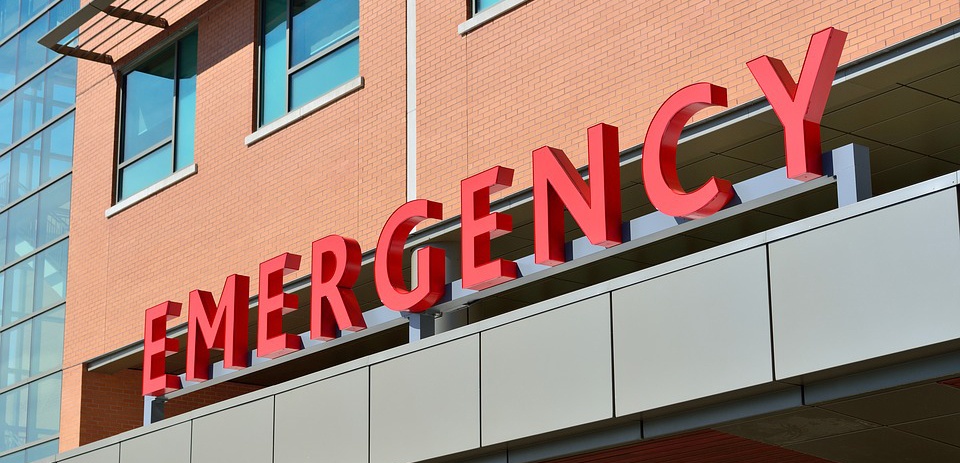
No one likes to think about the possibility of being injured or running into an emergency, but it’s always better and safer to be prepared than to move along relying on the belief that bad things only happen to somebody else.
This is true in many areas of life, even our oral health. With that thought in mind, here are important tips to remember to help deal with three common dental emergencies, so you can be safely prepared, and have the best chance of preserving your smile for years to come.
What to do when you lose a tooth
Generally, if you lose an adult tooth unexpectedly, it’s due to some sort of accidental trauma. There are some important steps that can be taken to try to preserve lost teeth in hopes of replacing them:
- If you find the tooth, pick it up by the crown, not the root. (This keeps the root as clean as possible and hopefully free of germs that can result in infection later on.)
- Keep the tooth as clean and safe as possible - preferably in a saline solution to keep it moist.
- Find a dentist immediately.
The main goal when dealing with a tooth that’s been forcefully ejected from the gum is to keep it clean and moist until a dentist can professionally replace it in your gum and repair any damage to the gum itself so that it heals appropriately. If the tooth is allowed to dry out or if it becomes too contaminated, it may not be healthy enough to replace, or replacement could lead to further problems down the road.
What to do if you crack a tooth
"The main goal when dealing with a tooth that’s been forcefully ejected from the gum is to keep it clean and moist until a dentist can professionally replace it..."
If you’ve ever experienced a serious tooth fracture (cracked or broken tooth,) you know how blindingly painful it can be. The worst cracks expose the highly sensitive nerves inside the tooth to things it was never meant to experience.
If you break a tooth, take the following steps to help control the pain and give your dentist the best chance of repairing the damage:
- Rinse your mouth with warm water. (Swish gently and replace the water often.)
- If the area is bleeding freely, apply gentle pressure with gauze or a warm tea bag to the spot until the bleeding stops.
- To reduce swelling and pain, apply a cold pack to the skin outside of the area with the broken tooth.
- Take over-the-counter (OTC) pain relievers to help control pain.
- Get to a dentist immediately.
Your dentist will be able to tell if the breakage was caused by trauma or a cavity, and will be able to determine if the nerve or blood vessels are damaged, and how to proceed to save as much of the natural tooth as possible.
For less serious fractures and chips - which may or may not be accompanied by pain - OTC pain relievers are usually sufficient for comfort, along with avoiding pain triggers like chewing directly on that tooth or drastic temperature fluctuations in the mouth. You should still see your dentist as soon as possible, although these issues are generally not considered emergencies.
What to do when you have a persistent toothache

Although the term “toothache” seems to indicate a small issue, a serious, persistent toothache can quickly become an all-consuming pain that affects one’s entire quality of life.
There are many possible reasons why a toothache could develop: from the presence of tiny fractures you can’t see, to a foreign object stuck in the gum line, to cavities or advanced tooth decay. Whatever the cause, treating a toothache can generally be handled the same way:
- Rinse with warm salt water. (The temperature is soothing to an aching tooth and the salt helps keep bacteria at bay).
- Gently floss around the aching tooth. (Sometimes, a toothache is a result of a small bit of food that’s gotten lodged so tight between two teeth or between the tooth and the gum that it’s causing constant pressure on the tooth or swelling, both of which lead to pain.)
- Take a recommended, appropriate dose of an over the counter pain reliever.
- Use a cold compress on the outside of the area of the mouth where the aching tooth is. (This helps reduce swelling and related pain.)
If a toothache is caused by a lodged particle of food or something else you can easily identify, it’s likely you can resolve it at home and not worry about consulting a dentist. However, if you’re unsure of the reason behind the toothache, or if trying the suggestions above is not offering adequate relief, you should see your dentist as soon as possible. They will be able to diagnose the cause of the pain and let you know what your treatment options are.
Although we don’t like to think about dealing with painful or dangerous circumstances - even dental emergencies - it’s always best to be prepared and to handle the situation calmly and quickly.
As was highlighted repeatedly in the tips above, involve your dentist as soon as possible any time you experience a dental emergency. If cost is a potential hindrance, take advantage of a discount dental card to ensure you can afford to care for your oral health no matter what unexpected events occur.

